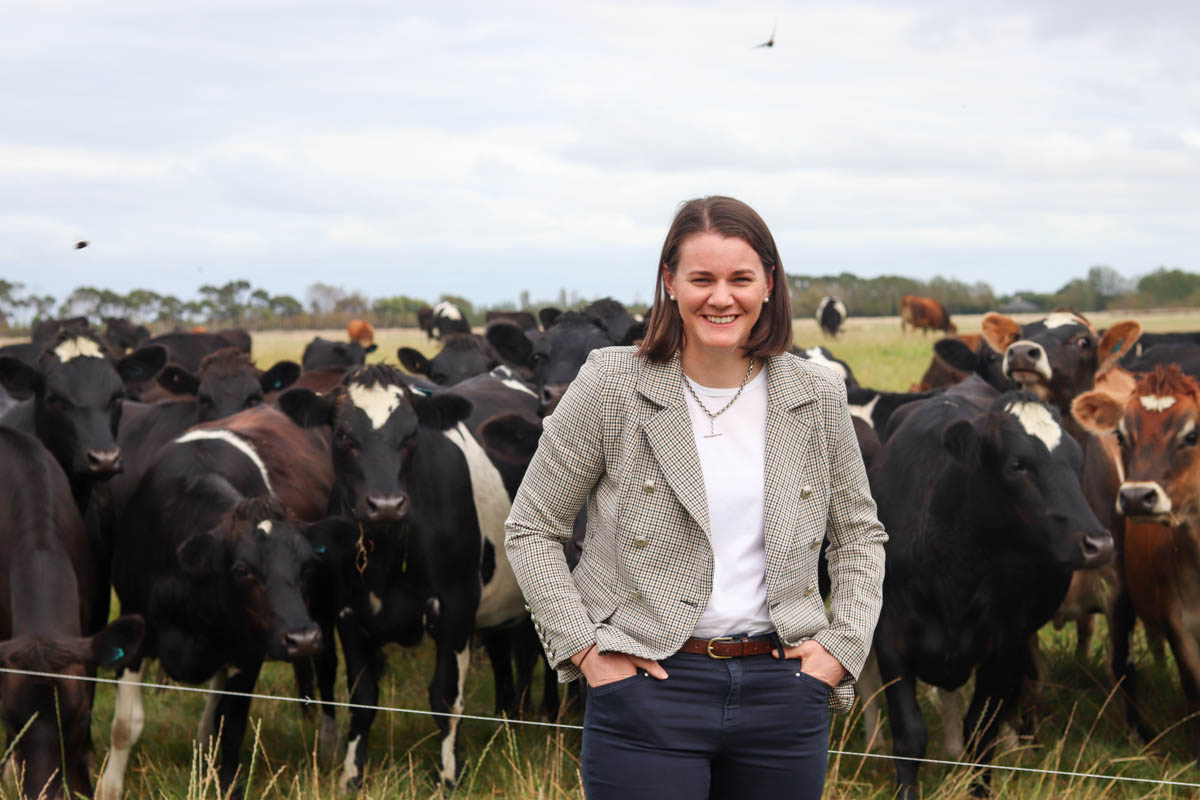The value of non-financial reporting
Jemima Snook’s Kellogg Rural Leadership project report posed the question of how to generate value and improve sustainability from non-financial farm reporting. We share an insight into her findings.

In a world where farmers are increasingly required to report on a range of information, demonstrating their green credentials, the question is how can they capture value from this reporting and enhance financial outcomes?
The new Government has indicated it will relieve some of the regulation pressure farmers are facing, but a level of regulation does look set to continue. Regardless, New Zealand food processors will continue to strive to understand their markets and respond appropriately.
While demonstrating green credentials to consumers may not always result in increased premiums, without these credentials there is a real risk of losing market access as environmental factors become non-tariff trade barriers. So, how can farmers positively engage with and generate value out of the non-financial information they are being required to report on?
The report covered key areas for farmers to consider how they utilise this information in their business planning, stakeholder management, and governance. Non-financial reporting in this context refers to disclosing information that gives stakeholders an understanding of the essential areas of value creation e.g., water quality.
Non-financial reporting should be an important part of the business planning and strategy process. Once a business identifies its key outcomes, non-financial and financial metrics should be used as a way to monitor and track progress. Examples of a non-financial metric include production data, water used per kilogram of output, or total emissions. To add value to the business, metrics must help generate action points to work on within the business or provide an understanding of the levers that can be adjusted by the farmer.
It is critical that one metric is not focused on in isolation to the cost and detriment of the wider business. So, a carefully selected group of metrics should provide a balanced view of the business and help to achieve the business strategy and goals.
While benchmarking should always be considered carefully within the context of the business, many farmers seek non-financial information to help understand where they sit on the sustainability scale. Snook’s research found that farmers recognise the role that stakeholders (such as suppliers) have to play in helping to develop systems that enable the capture of non-financial data in conjunction with financial information.
In addition, accountability and feedback are considered important for improving sustainable farming practices when considering non-financial reporting. Farmers note that they gain the most benefit from pre-engagement activities with irrigation audits, and gaining actions to take away when working with stakeholders and advisors. “In terms of people, it was clear that social sustainability in the farming industry needs to improve. We need more people passionate about farming who see it as a viable long-term career option,” she reports.
One way to achieve this could be to look outside the farm gate and into other types of businesses and industries that attract and retain good staff. Second, our people onfarm are driving the sustainable farming behaviours, culture, and the daily actions that contribute to achieving non-financial outcomes. Having good people who are passionate about what they do onfarm is an important driver of sustainability.
For farms carrying significant debt, their bank is a key stakeholder and interest costs are a major expense. Farmers can help manage their relationship with their bank by owning their data, tracking improvements, and scheduling regular check-ins with their bank. Research showed it was considered important that farmers could demonstrate their financial understanding of environmental implications and their financial investment in environmental/social sustainability in their budgets and financial results. As always, showing strong business management can help towards managing interest rate margins; well worth the time investment for a farmer.
Unsurprisingly, Snook’s research also found that family farms tend to focus on farming for future generations and have inter-generational views of land and people. This links strongly to onfarm sustainability. “I see that protecting the family farm structure and ownership in New Zealand is important.” This leads to the conclusion that when bringing in external shareholders it is important that they are aligned with the long-term business goals and objectives.
From a governance perspective, farmers need to be strategically engaged with reporting requirements to manage risk and maintain capital asset values. Data must be used internally and externally to drive good decision-making, identify opportunities, and minimise negative business impacts. Using an ESG-style framework can help a farmer to identify areas to minimise waste, improve efficiencies, and manage costs. (ESG stands for Environmental, Social, & Governance). Support is then needed from the closest stakeholders in a farming business such as employees and shareholders in driving that change onfarm.
Farmers have shown great adaptability and innovation towards regulation in recent years, and a mindset shift was evident from the farmers interviewed. However, in the same way farming is a process of continuous improvement, the sector still has progress to make in understanding what good non-financial information is, and how to effectively get the best from it. Non-financial data when utilised properly is a good tool for decision making in business planning, stakeholder management, and governance contexts.
The ability to utilise non-financial reporting shouldn’t be limited to just large corporates with scale and resources, it should also be available to all farmers who are looking to improve their business. “This is an important role that all farming advisors, including myself, play in helping and supporting farmers to understand and implement the change they wish to drive within their business.”
Some key actions for farmers to take away from the research are:
- Identify what non-financial Key Performance Indicators (KPIs) are relevant to your business and use these as part of your business planning process to help ensure these are effective.
- Engage support from your trusted advisory team to help you implement effective non-financial reporting.
- Provide balanced Non-Financial Reporting alongside financial reporting to shareholders and financiers to help provide a whole-farm focus in discussions around results.
- Engage with employees effectively as part of the sustainability process, to build a sustainable culture onfarm that will help drive desired results.
- Utilise available farmer-led benchmarking to understand where you sit on the sustainability bell curve.
- Understand the cost of being an early adopter, and target investment in sustainable actions gradually that will help to set up long-term business resilience and generate positive financial outcomes.




